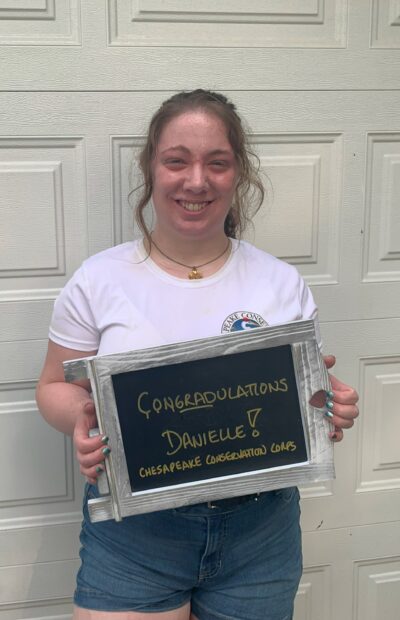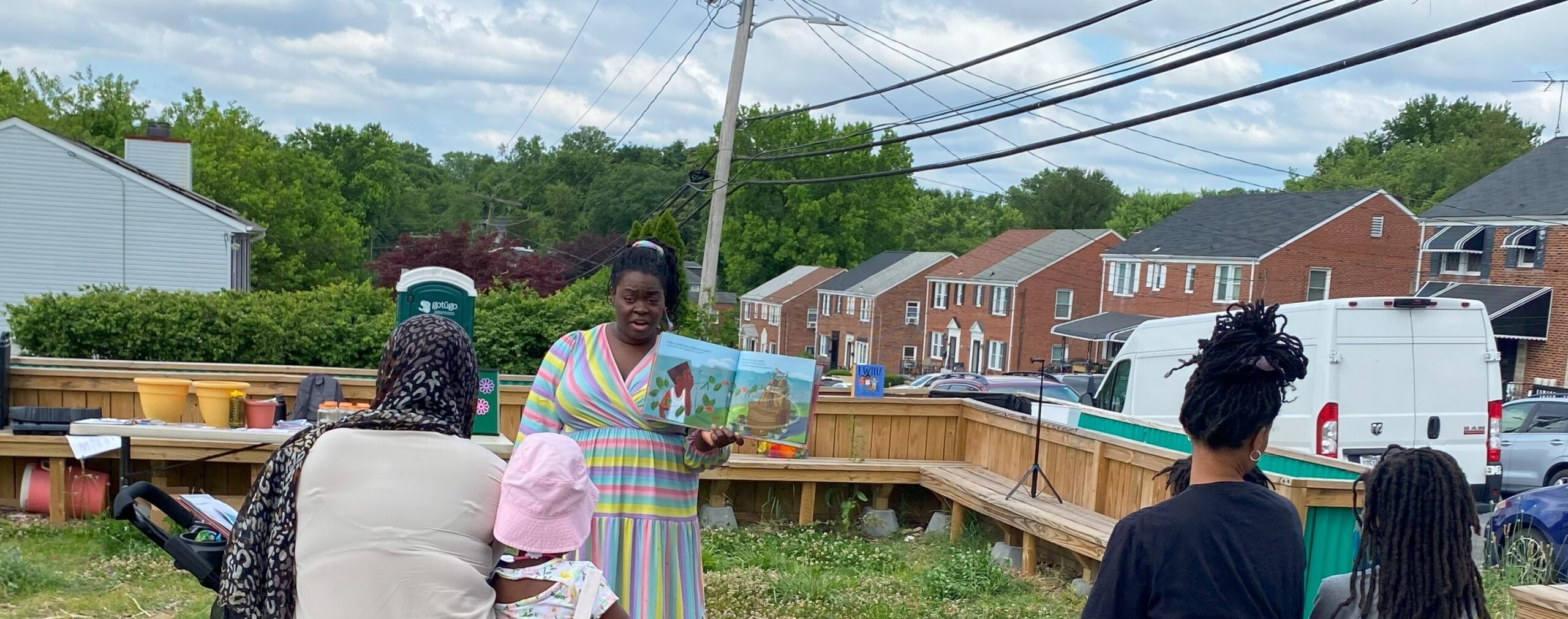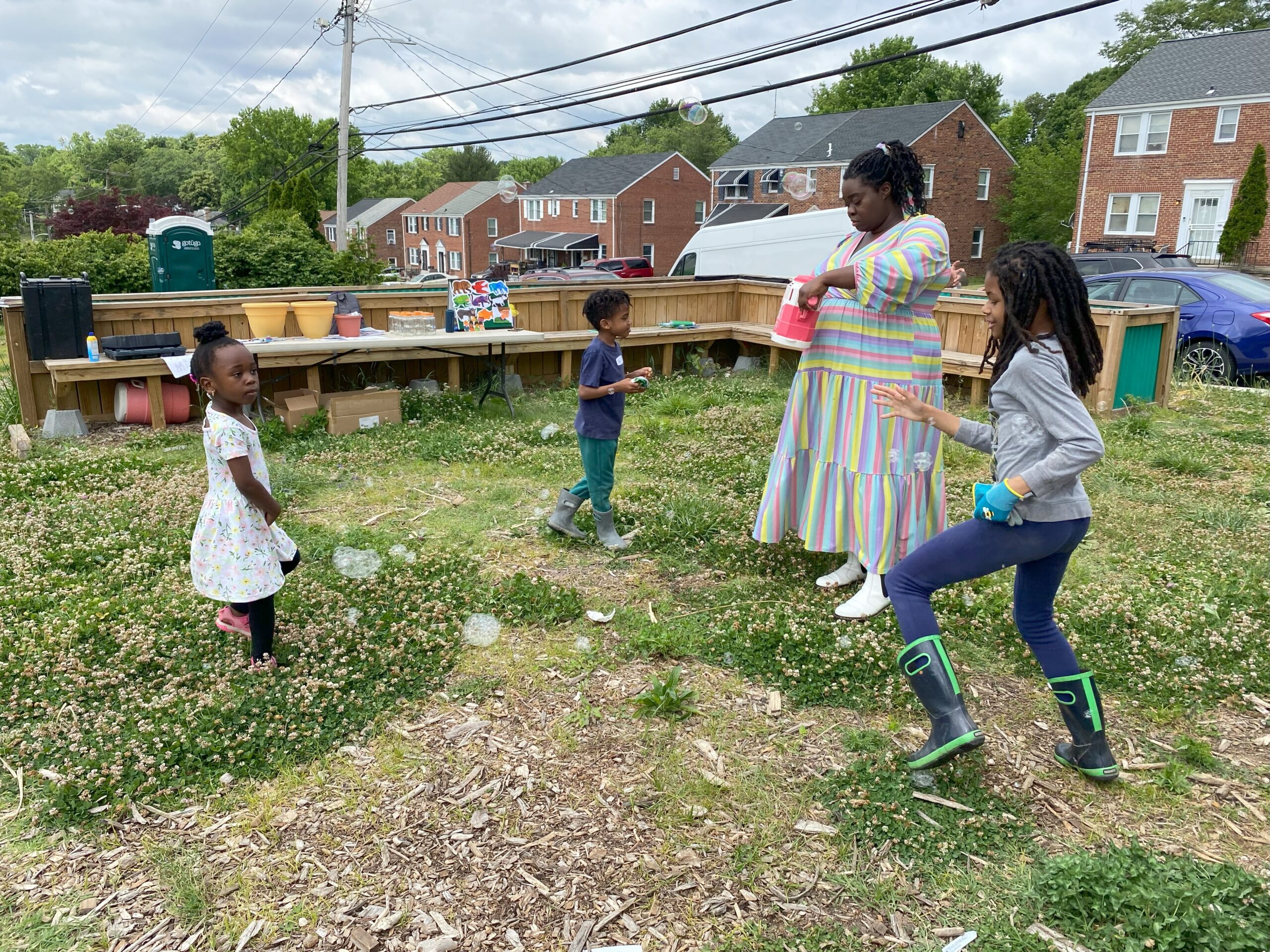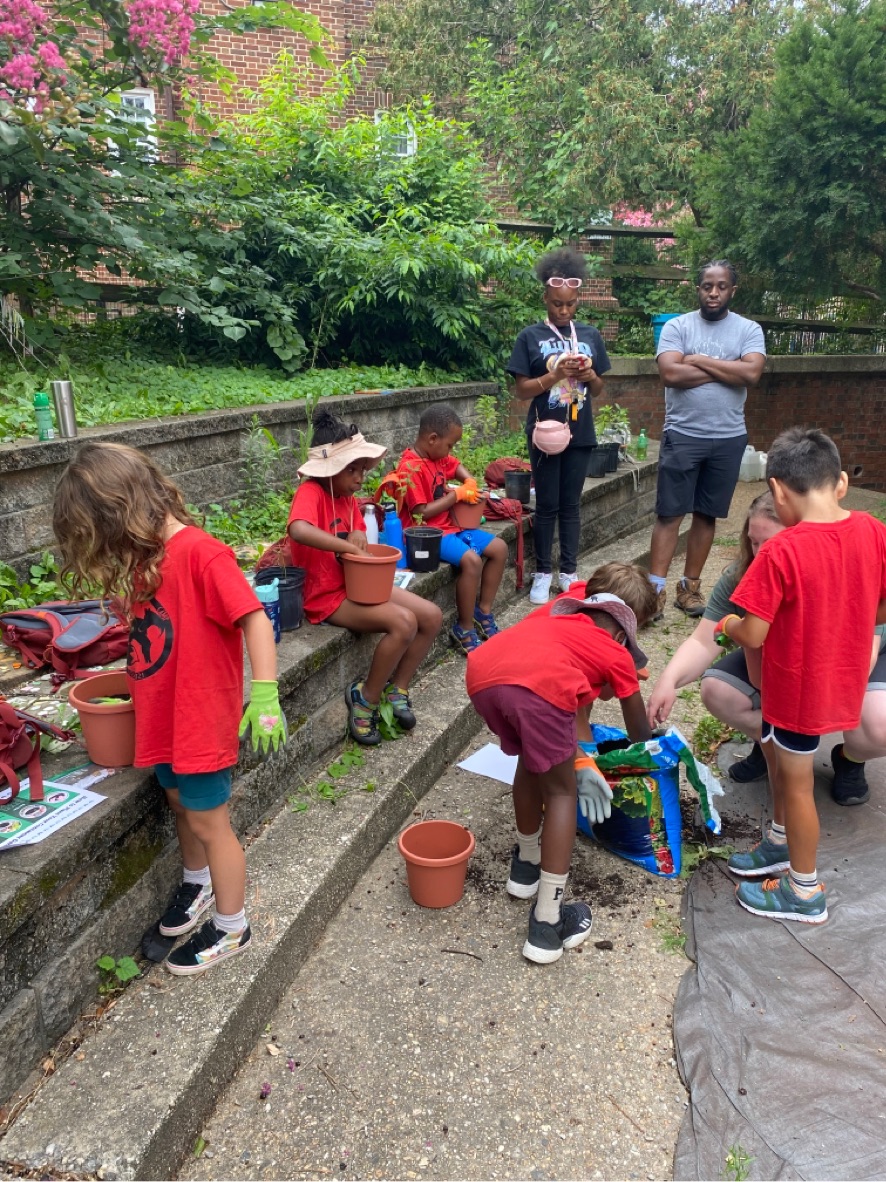We have much more to do and your continued support is needed now more than ever.
Planting the Storytelling Seed
A Reflection of an Environmental Storytelling Workshop
For the past year I have been a part of the Chesapeake Conservation Corps (CCC) working with the National Wildlife Federation (NWF) Mid-Atlantic Regional Center. Looking back on this past year with NWF, I’ve gotten to do so many amazing things: I helped to lead several volunteer events, I applied for and received my first grant (the Chesapeake Bay Trust Mini-Grant), and I even presented at two different conservation conferences, one of them international.

However, my greatest achievement was my CCC capstone project, “Planting the Storytelling Seed.” Working with Backyard Basecamp, an urban farm and environmental education non-profit, and Storybook Maze, an organization dedicated to eliminating Baltimore’s book deserts, I completed a capstone with three different elements: a storytelling workshop, a native plant giveaway, and a kid-friendly garden stewardship kit.
Together, these elements had the goal of engaging youth in East Baltimore in building their connection with nature, teaching them about the importance of native plants and pollinators, and encouraging them to participate in stewardship and conservation efforts in Baltimore City.
Why a Storytelling Capstone?
Stories are powerful. “Storytelling holds immense importance in Baltimore, particularly in the context of Black communities,” Araba Maze of Storybook Maze explains. “It is deeply rooted in the rich tradition of oral history, where storytelling has been an integral part of preserving cultural heritage and passing down knowledge from one generation to another. In these communities, storytelling serves as a powerful tool for identity development and cultural expression, reinforcing the sense of belonging and pride among individuals.”

The goal of my project was for Baltimore youth to see themselves in environmental stories. In hosting an environmental storytelling capstone, I tried to meet the community’s cultural and spiritual needs as well as address the environmental needs of their urban ecosystem.
Araba Maze (Storybook Maze) was the perfect partner to help meet those cultural and spiritual needs. Once a more traditional librarian, Araba decided to form Storybook Maze after learning about library barriers and book deserts. About that decision, Maze says, “It became clear that I wouldn’t reach my neighbors who need it most inside library walls.” So I quit my job and became a radical street librarian mobilizing social media platforms like TikTok and Instagram to create viral videos to raise awareness around book deserts and crowdfund to kickstart my mission.”

Maze led a “Storytime on the Stoop” during the storytelling workshop. Participants were treated to a delight of the senses. They sang and danced, told stories in American Sign Language, and interacted with props like bubbles, scarves, and egg shakers.
The Planting of the Seed
The students spent the remaining time during the session learning about native plants and pollinators before creating their own container gardens themselves. They decorated the pots, and filled their containers with native plants that they got to take home. Participants also received copies of Jayden’s Impossible Garden by Mélina Mangal and resources for plant care, including kid-sized gloves and printed educational materials.

To my surprise, the participants weren’t the only ones to take something home. My workshop introduced Atiya Wells, the Executive Director of Backyard Basecamp to Araba Maze (Storybook Maze). In making that connection, I helped form a partnership dedicated to interactive environmental education of BIPOC students in Baltimore.
That partnership has already started to bear fruit. Backyard Basecamp and Storybook Maze successfully teamed up with another organization, “N Life Organization,” for a book giveaway, and the two non-profits have plans for the future.
“While the partnership is still in its early stages, we recognize the immense potential it holds for future collaboration and impact in Baltimore communities,” Maze notes. “Moving forward, we envision a wide range of joint initiatives, including future garden storytimes, pop-up bookstores, and more that will create transformative experiences for children and youth in Baltimore. The support and collaboration of NWF have been instrumental in this journey, and we look forward to the future with great anticipation and enthusiasm.”
Of every achievement I have accomplished at NWF, it is this partnership that I am most proud of. In working to help a few children at one moment in time, I got to see how trusted community partnerships get built over time, how one project can bloom and expand into a growing collective of positive change. I am excited to see what’s to come for the growing collaborative.
Learn more about the Workshop Partners!
If you are also excited to see what’s to come for this partnership, be sure to keep in touch with all organizations.

Follow @backyard_basecamp on Instagram and Facebook to learn about their initiatives to (re)connect Black, Indigenous, and People of Color (BIPOC) to land and nature in Baltimore City.
Follow @storybookmaze on Instagram, TikTok, and Facebook to learn about their mobile book initiatives, pop-up libraries, street storytelling sessions, and other ways they work to create meaningful connections with readers all over the Baltimore Metro Area. You can also contribute to their book truck fundraiser in a variety of ways by clicking here.
Follow @nwfmidatlantic on Instagram and Twitter to learn about their programmatic work to ensure people and wildlife thrive across the Mid-Atlantic.




















